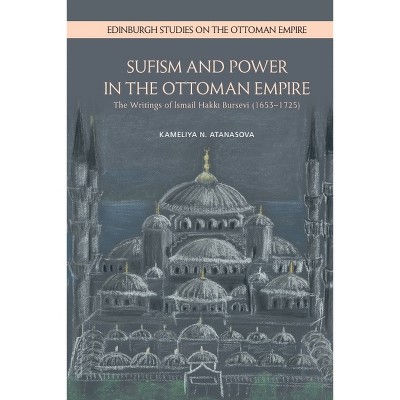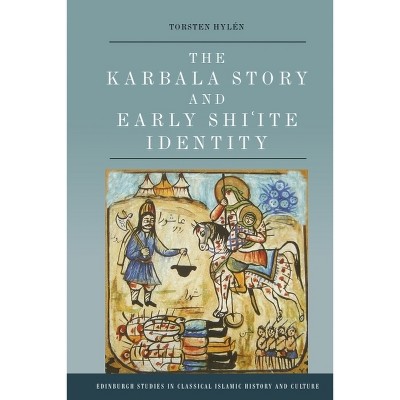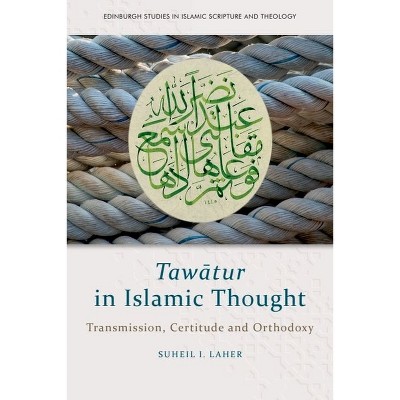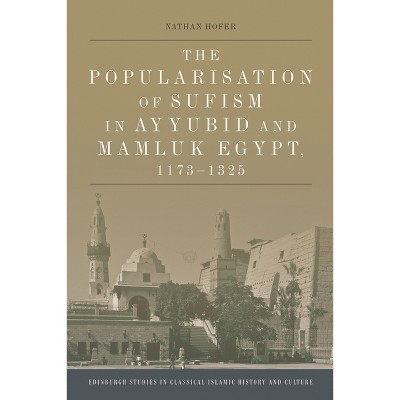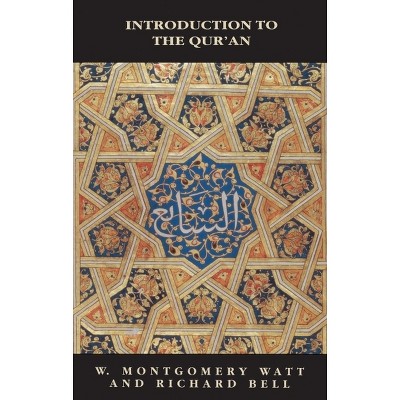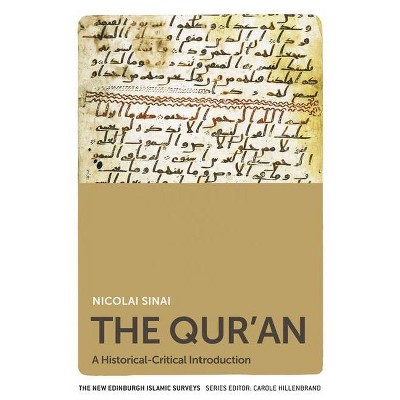Ottoman Sunnism - (Edinburgh Studies on the Ottoman Empire) by Vefa Erginbaş (Paperback)

About this item
Highlights
- Addressing the contested nature of Ottoman Sunnism from the 14th to the early 20th century, this book draws on diverse perspectives across the empire.
- About the Author: Vefa Erginbaş is an Assistant Professor of History at Providence College, USA.
- 272 Pages
- Religion + Beliefs, Islam
- Series Name: Edinburgh Studies on the Ottoman Empire
Description
About the Book
Addressing the contested nature of Ottoman Sunnism from the 14th to the early 20th century, this book draws on diverse perspectives across the empire.
Book Synopsis
Addressing the contested nature of Ottoman Sunnism from the 14th to the early 20th century, this book draws on diverse perspectives across the empire. Closely reading intellectual, social and mystical traditions within the empire, it clarifies the possibilities that existed within Ottoman Sunnism, presenting it as a complex, nuanced and evolving concept.
The authors in this volume rescue Ottoman Sunnism from an increasingly bipolar definition that seeks to present the Ottomans as enshrining a clearly defined orthodoxy, suppressing its contrasting heterodoxy. Challenging established notions that have marked the existing literature, the chapters contribute significantly not only to the ongoing debate on the Ottoman age of confessionalisation but also to the study of religion in the Ottoman context.
From the Back Cover
Explores Ottoman Sunnism from the earliest period of the empire to its end Addressing the contested nature of Ottoman Sunnism from the 14th to the early 20th century, this book draws on diverse perspectives across the empire. Closely reading intellectual, social and mystical traditions within the empire, it clarifies the possibilities that existed within Ottoman Sunnism, presenting it as a complex, nuanced and evolving concept. The authors in this volume rescue Ottoman Sunnism from an increasingly bipolar definition that seeks to present the Ottomans as enshrining a clearly defined orthodoxy, suppressing its contrasting heterodoxy. Challenging established notions that have marked the existing literature, the chapters contribute significantly not only to the ongoing debate on the Ottoman age of confessionalisation but also to the study of religion in the Ottoman context. Key Features Revisionist chapters question established paradigms on Ottoman Sunnism, offering complex and nuanced understandings of the subject Contributes to the ongoing debate regarding confessionalisation in the Ottoman Empire Explains and - where necessary - revises various understandings of Ottoman religion Reflects different perspectives across the Empire, particularly from the Balkans and central heartlands Relevant to historians who study religion in Europe and Asia in the early modern world, allowing for increased comparative insights Vefa Erginbaş is an Assistant Professor of History at Providence College, Rhode Island, USA.Review Quotes
Ottoman Sunnism offers a wide and rich range of perspectives on the nature of Ottoman Sunni Islam and the Ottoman confession building projects from the fifteenth through the nineteenth centuries. The different views and approaches will provoke discussions among scholars of Islam in the Ottoman Empire and well beyond.-- "Guy Burak, New York University"
Overall, this volume is strongly written and well-constructed, with a forceful message. Totally fascinating, Ottoman Sunnism: New Perspectives is a magnificent achievement that must be considered a work of high academic art created by researchers of obviously commanding talents, judgement, balance and moral vision.--Abdullah Drury, University of Waikato "The Muslim World Book Review, 42:3, 2022"
About the Author
Vefa Erginbaş is an Assistant Professor of History at Providence College, USA. He has a Ph.D. in history, which he received from the Ohio State University. Erginbaş studies early modern Ottoman intellectual, social, and cultural history. His published works deal with the issues of religious sectarianism in the early modern Islamic world, as well as historical-writing in the Ottoman Empire and Enlightenment in the Islamic world.






